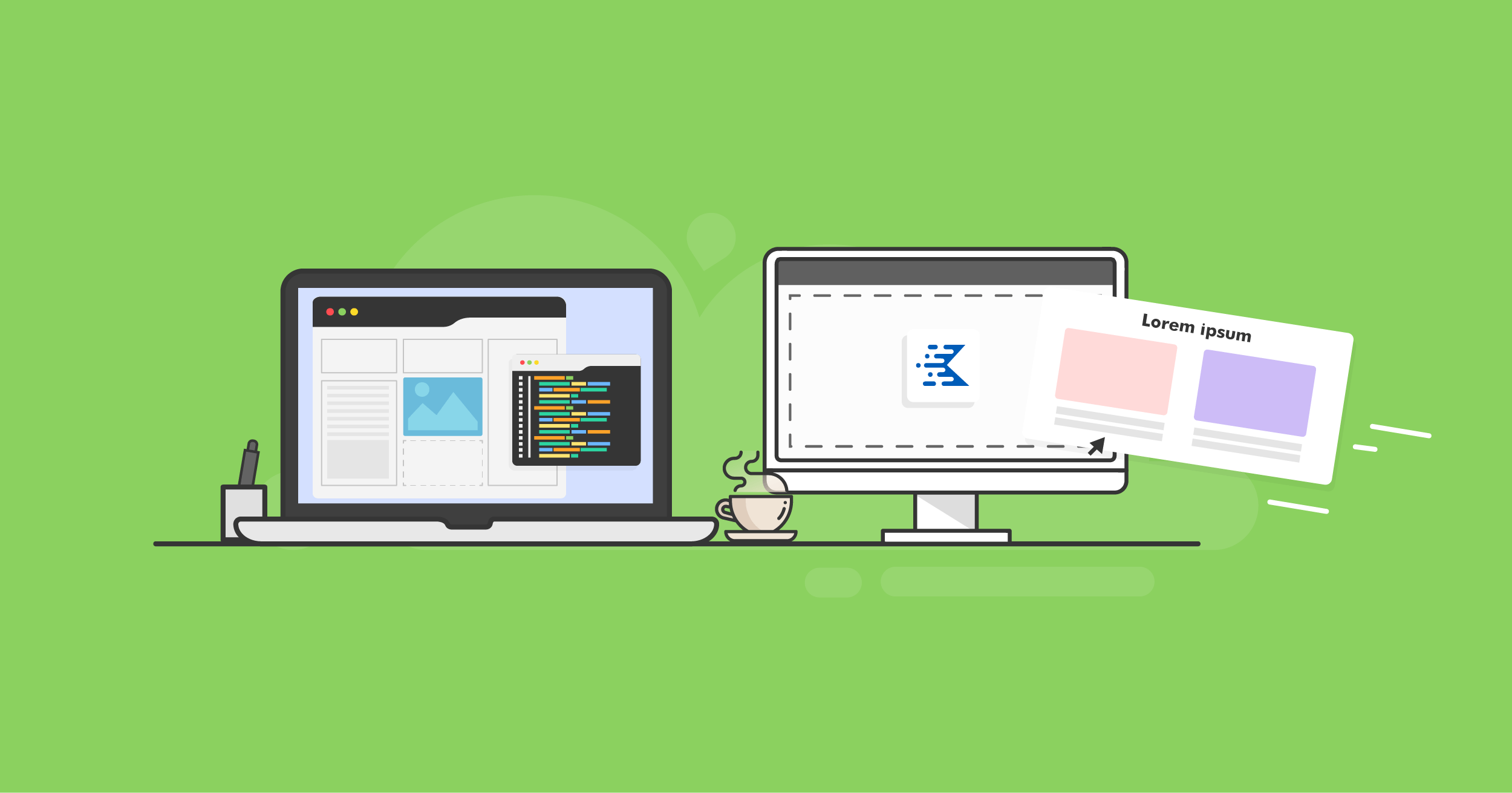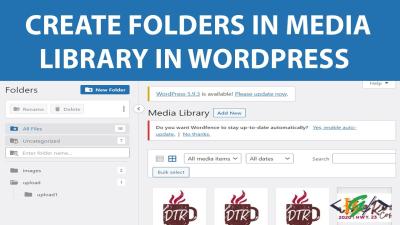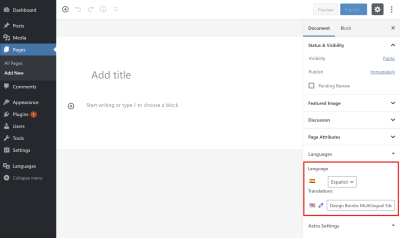Finding the perfect WordPress designer can feel overwhelming, especially with so many options out there. You want someone who not only has the technical skills but also understands your vision and can bring your website to life. The right designer will make the process smooth, enjoyable, and result in a site that truly represents your brand. In this post, we’ll explore how to identify what you need, ask the right questions, and choose a designer who’s a perfect fit for your project.
Understanding Your Website Goals and Requirements

Before even reaching out to potential designers, it’s crucial to clarify what you want to achieve with your website. Think of your website as a tool to serve your business or personal brand. Do you want an online store, a portfolio, a blog, or a corporate site? The purpose will influence the design, features, and functionality you need.
Start by asking yourself some key questions:
- What is the main goal of my website? (e.g., sales, brand awareness, information sharing)
- Who is my target audience? (consider age, interests, tech-savviness)
- What features do I need? (e.g., contact forms, e-commerce capabilities, booking systems)
- What is my budget? (be honest about what you can afford)
- What is my timeline? (do you need the site live in a few weeks or months?)
Once you’ve answered these questions, you’ll have a clear picture of your requirements, which makes it much easier to communicate your needs to a designer. It also helps you evaluate whether a designer’s skills align with what you’re looking for. For example, if you plan to sell products online, you’ll need someone experienced in WooCommerce or other e-commerce platforms. If branding is a priority, look for designers with strong skills in visual identity and custom design. Knowing your goals and requirements upfront sets the stage for a successful collaboration and ensures you get a website that truly meets your needs.
3. Key Skills and Experience to Look for in a WordPress Designer
When you’re on the hunt for a WordPress designer, it’s essential to know what skills and experience will make them the right fit for your project. After all, a great website is more than just good looks — it needs to be functional, user-friendly, and tailored to your needs.
First off, technical skills are a must. Look for someone who is proficient in:
- HTML & CSS: The building blocks of web design. A good designer should know how to tweak the code to customize themes and fix minor issues.
- PHP & WordPress Core: Since WordPress runs on PHP, understanding its core functions helps in creating custom features or troubleshooting problems.
- JavaScript & jQuery: For interactive elements like sliders, pop-ups, or dynamic menus that make your site engaging.
- Theme Development & Customization: Ability to modify existing themes or build custom ones from scratch to match your branding.
- Plugin Integration & Development: Ensuring your site works seamlessly with essential plugins, and possibly creating custom plugins if needed.
Beyond technical skills, experience matters. Check if they have a track record working on projects similar to yours. Do they understand your industry? Have they built e-commerce stores, portfolios, blogs, or corporate websites? The more relevant their past work, the better they can tailor their approach to your needs.
Additionally, consider:
- Design Sense: Do they have a good eye for aesthetics and user experience? Can they create modern, responsive designs that look great on all devices?
- SEO Knowledge: Understanding of how to optimize your website for search engines — an often overlooked skill that can significantly impact your online presence.
- Communication & Collaboration: Are they approachable and clear in their communication? Will they listen to your ideas and provide valuable input?
- Project Management: Ability to meet deadlines, stick to budgets, and organize tasks efficiently.
Finally, don’t forget to ask about their familiarity with current design trends and best practices. A skilled WordPress designer stays updated with the latest tools, techniques, and security protocols to ensure your website is not only beautiful but also safe and future-proof.
4. How to Evaluate a WordPress Designer’s Portfolio and Past Work
Looking at a designer’s portfolio is like getting a sneak peek into their creative soul. It’s your best chance to see their style, their skills, and whether they can deliver what you’re envisioning for your website.
Start by browsing their portfolio thoroughly. Here’s what to look for:
- Variety of Projects: Do they showcase different types of websites — blogs, e-commerce, corporate sites? This shows versatility.
- Design Quality & Consistency: Are the designs modern, clean, and professional? Do they look consistent across pages?
- Responsiveness: Check if their websites look great on mobile, tablet, and desktop. Responsive design is a must nowadays!
- User Experience: Is the navigation intuitive? Are calls-to-action clear? A good portfolio displays functional, user-friendly sites.
Beyond visual appeal, dig into the details:
- Technical Implementation: Are the sites fast-loading? Do they use optimized images and clean code?
- Features & Customizations: Look for examples of custom plugins, unique layouts, or special functionalities that match your needs.
- Client Testimonials & Case Studies: Do they include feedback or stories about how their work helped the client achieve goals? This adds credibility.
Don’t hesitate to reach out to their past clients if possible. Ask questions like:
- Was the project delivered on time and within budget?
- How was the communication process?
- Are they satisfied with the final product?
Lastly, consider the overall impression. Does their style resonate with your brand? Do you feel confident they can execute your vision? Remember, a well-curated portfolio is a strong indicator of a talented and reliable WordPress designer.
5. Questions to Ask During the Hiring Process
Finding the right WordPress designer isn’t just about looking at their portfolio and hoping for the best. It’s essential to have a set of insightful questions ready to ensure they’re the perfect fit for your project. Asking the right questions can reveal their experience, work style, and how well they understand your needs.
Here are some key questions to consider:
- Can you show me examples of websites you’ve designed that are similar to what I want? This helps you gauge their experience with your industry or style preferences.
- What is your usual process from start to finish? Understanding their workflow ensures you’re on the same page about timelines and deliverables.
- How do you handle feedback and revisions? It’s important to know how flexible they are and how many revision rounds are included.
- Are you familiar with SEO best practices? A well-designed website should also be optimized for search engines.
- What platforms or tools do you prefer to use during the design process? This can give you insight into their technical expertise and collaboration style.
- How do you ensure the website is mobile-responsive and fast-loading? Given how much traffic comes from mobile devices, this is a must-know.
- Can you provide references from past clients? Speaking with previous clients can reveal how they handled projects and client relations.
Remember, these questions aren’t just about gathering information—they’re also about building rapport. A good designer will be open, transparent, and eager to discuss their approach. Trust your instincts and don’t hesitate to ask follow-up questions if something isn’t clear. The goal is to find someone who not only has the skills but also understands your vision and can bring it to life seamlessly.
6. Tips for Communicating Your Vision Clearly
Clear communication is the backbone of any successful website project. If your designer understands exactly what you want, the process becomes smoother, and the final product is more likely to meet your expectations. Here are some practical tips to ensure your vision comes across loud and clear:
- Start with a detailed brief. Write down your goals, target audience, preferred style, color schemes, and must-have features. The more specific, the better.
- Gather inspiration. Share websites you love—point out what you like about them, whether it’s the layout, typography, or overall vibe. Tools like Pinterest or mood boards can be incredibly helpful.
- Use visuals whenever possible. Images, sketches, or wireframes can communicate your ideas more effectively than words alone.
- Be honest about your budget and timeline. Transparency helps your designer propose realistic solutions and avoid surprises down the road.
- Communicate regularly and ask for updates. Regular check-ins ensure you’re on the same page and can address any concerns early on.
- Provide constructive feedback. When reviewing drafts, be specific about what you like and what needs adjustment. Instead of saying “I don’t like this,” try “I think the color scheme here is too dull; can we make it more vibrant?”
- Use clear language and avoid jargon. If you’re not familiar with technical terms, ask your designer to explain concepts in simple terms. This helps prevent misunderstandings.
Ultimately, effective communication is about being open, honest, and respectful. Remember, your designer wants to create a website that meets your needs—so sharing your ideas clearly and listening to their suggestions will lead to a successful collaboration and a website you’ll love!
7. Considering Budget and Timeline for Your Website Project
Before diving into the search for your perfect WordPress designer, it’s essential to get clear on your budget and timeline. Knowing these details upfront helps narrow down your options and ensures that expectations are realistic from the start.
Budget is often the biggest factor in choosing a designer. WordPress designers can range from freelancers charging a few hundred dollars to agencies with premium services costing thousands. Think about what you’re willing to invest and what you hope to achieve with your website. Remember, sometimes you get what you pay for—so setting a reasonable budget aligned with your goals is key.
When considering your budget, ask yourself:
- What features do I need now, and what can I add later?
- Am I looking for a simple blog, a portfolio, or a full-fledged e-commerce site?
- Am I open to working with freelancers, agencies, or offshore developers?
As for timeline, be honest about when you want your website launched. Do you have a hard deadline for a product launch, event, or campaign? Or are you flexible and willing to extend the timeline for a more polished result?
Discuss your timeline early with potential designers. Some might be booked up for months, while others can start immediately. Keep in mind that rushing a website can lead to subpar results, so balancing your timeline with quality is important.
To sum up, finding a designer who fits your budget and timeline involves:
- Assessing your financial resources and setting a realistic budget
- Determining your desired launch date and project milestones
- Communicating these details clearly to potential designers
- Being flexible where possible to get the best quality within your constraints
By being upfront about your budget and timeline, you save yourself a lot of trouble later on and set the stage for a smooth project from start to finish.
8. Where to Find Skilled WordPress Designers
Now that you’ve got a handle on your budget and timeline, the next step is finding the right designer. Thankfully, there are plenty of places to discover talented WordPress professionals—whether you prefer working with freelancers, agencies, or agencies. Here’s a breakdown of some of the best options:
Freelance Platforms
Websites like Upwork, Freelancer, and Fiverr are great starting points. You can browse profiles, see reviews, and compare prices all in one place. Look for freelancers with high ratings, a strong portfolio, and specific WordPress experience.
Specialized WordPress Communities
Communities like WPBeginner, WPMU DEV, and WordPress.org forums often feature listings or recommendations for skilled designers. These platforms attract professionals who are deeply familiar with WordPress, making it easier to find someone who knows the platform inside out.
Design Agencies and Studios
If you’re after a more comprehensive service, consider working with a design agency. Agencies often have a team of experts covering design, development, and marketing. Look for agencies with a solid portfolio, good reviews, and clear communication. Websites like Clutch or DesignRush can help you find reputable agencies based on your location and needs.
Social Media and Portfolio Sites
Platforms like Behance and Dribbble are treasure troves for discovering talented designers. You can see their work firsthand and reach out directly. LinkedIn is also useful for finding professionals with specific skills and checking their work history.
Referrals and Word of Mouth
Sometimes, the best way to find a trustworthy designer is through your network. Ask friends, colleagues, or business partners if they can recommend someone they’ve worked with and trust. Personal recommendations often come with honest feedback and a better chance of a smooth collaboration.
In the end, choosing where to find your WordPress designer depends on your specific needs, budget, and preferred working style. Take your time to review portfolios, ask questions, and ensure they understand your vision. Finding the right person or team makes all the difference in creating a website that truly represents your brand and helps you achieve your goals.
Final Steps to Hire the Best WordPress Designer for Your Website
After narrowing down your list of potential WordPress designers, it’s essential to follow a structured approach to make the best choice. The final steps involve thorough evaluation, clear communication, and setting expectations to ensure a successful collaboration.
First, review each designer’s portfolio and case studies. Look for projects similar to your website needs and assess their design style, functionality, and overall quality. Don’t hesitate to ask for client references or testimonials to gauge their professionalism and reliability.
Next, schedule interviews or consultations to discuss your project in detail. Prepare a list of questions such as:
- What is their experience with WordPress and your industry?
- How do they handle project timelines and revisions?
- What is their pricing structure, and what does it include?
- How do they ensure your website is optimized for speed, SEO, and mobile responsiveness?
Communication is key. Choose a designer who listens carefully, understands your vision, and communicates clearly throughout the process. Clarify deliverables, milestones, and payment terms upfront to avoid misunderstandings.
Additionally, consider technical aspects like post-launch support and maintenance services. Confirm whether they offer training or documentation to help you manage your website after launch.
Finally, trust your instincts. Select a designer who demonstrates professionalism, creativity, and a genuine interest in your project. A good working relationship will make the entire process more enjoyable and successful.
By following these steps, you’ll be well-equipped to hire a WordPress designer who can bring your website vision to life effectively and efficiently.


